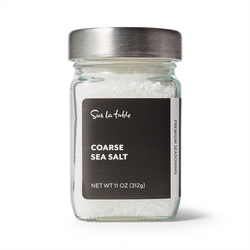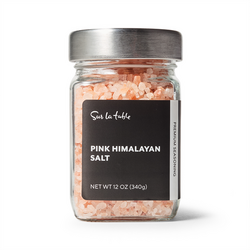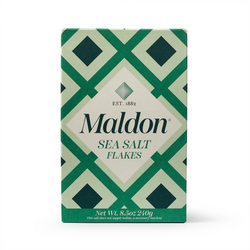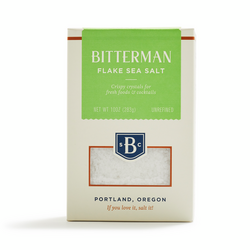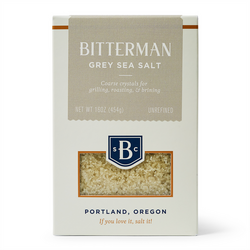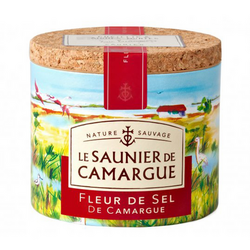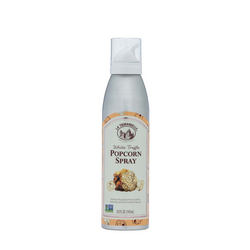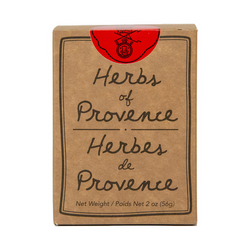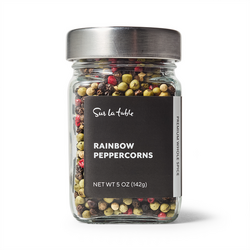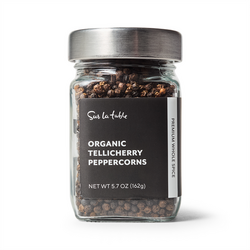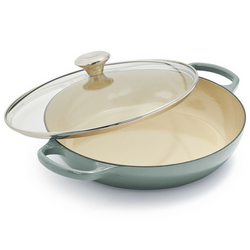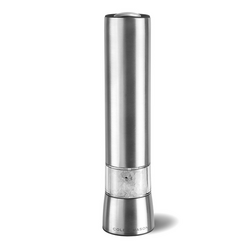-
(3)
Salt is Kosher, but is not Kosher salt. Works OK in grinder....All salts are Kosher, but not all salt is Kosher salt.
Pros: works in grinder, versatile, kosher
Add to Bag -
This nutrient and mineral-rich salt is excellent on grilled meats, seafood, veggies and more. The beautiful pink tint is due to trace minerals and the darker colors present indicate an increased number of beneficial trace elements like iron. Though our...
Add to Bag -
(6)
Maldon sea salt...Best salt ever
Pros: flavor, enjoyment, perfect flavor
Add to Bag -
(4)
Best salt ever! It is light and refreshing. Perfect for food finishing. ...This is simply the best salt I've ever had....Best Salt Ever
Pros: light taste, best quality, gift appeal
Add to Bag -
(2)
This is worth it's salt...pun intended....The difference between regular sea salt and the smoked is pronounced. This salt is lovely....It is a great concept of an idea: the salt smells amazing and has a very strong smoked smell even when inside of a...
Pros: flavor, pronounced smoked flavor, versatility
Add to Bag -
(1)
Great salt...Great salt! Makes meats taste better!
Pros: enhances meat flavor
Add to Bag
Salt For Fermenting Cabbage
Fermentation is a great way to preserve food. It can help you save money, avoid additives, and make your own healthy probiotics. And one of the easiest ways to ferment food is with salt. These salts can be used to make sauerkraut, kimchi, and other fermented foods. They are also great for pickling vegetables. Here are some great options.
Salt For Fermenting Cabbage
Salt for fermenting cabbage is a thoughtful choice for anyone who enjoys home cooking, gardening, or exploring traditional food preservation methods. It makes a practical and unique gift for those who appreciate homemade foods, especially during the summer months when cabbage and other fresh vegetables are in abundance. Gifting a carefully chosen salt alongside a fermentation crock or jar can inspire a loved one to try their hand at making their own sauerkraut, kimchi, or pickled vegetables. For families interested in healthy eating, fermenting cabbage at home is a fun project that can be enjoyed together, introducing children to the science and satisfaction of creating their own probiotic-rich foods. Chefs and home cooks alike will appreciate the subtle differences that the best salt for fermenting cabbage can bring to their recipes, from a crisp tang in kraut to the deep, savory notes in kimchi.
Choosing the right salt is not just about tradition—it’s about achieving the best possible results in flavor, texture, and preservation. The summer season is an ideal time to experiment with fermentation, as gardens and farmers’ markets are overflowing with fresh produce. Using high-quality salt ensures that your cabbage ferments safely and develops the nuanced flavors that make these foods so beloved. If you’re interested in exploring a wider variety of salts for both fermentation and everyday cooking, consider browsing our selection of Sea Salts For Cooking. With the right salt in hand, you’ll be well on your way to creating vibrant, delicious, and wholesome fermented cabbage dishes to enjoy throughout the year.
Top Picks For Salt For Fermenting Cabbage
FAQ List
Salt for fermenting cabbage is specifically designed to provide the necessary nutrients and texture for successful fermentation, whereas regular salt may contain additives or have a different texture that can affect the fermentation process.
The amount of salt needed for fermentation can vary depending on the recipe and personal preference, but a general rule of thumb is 1-3 tablespoons of salt per 5 pounds of cabbage.
While some types of salt may work for fermenting cabbage, it's best to use a salt specifically designed for fermentation to ensure the best results. Look for salts that are free of additives and have a high mineral content.
The fermentation process for cabbage can take anywhere from a few days to several weeks, depending on the recipe and the temperature of the fermentation environment. It's important to monitor the fermentation process and taste the cabbage regularly to determine when it's reached the desired level of sourness.
Fermented cabbage, such as sauerkraut and kimchi, is a great source of probiotics, which can help support a healthy gut microbiome. It's also high in vitamins C and K, and may have anti-inflammatory properties.

